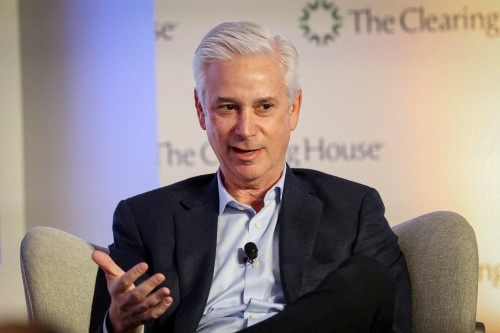By Noel Randewich and Ankika Biswas
(Reuters) – U.S. stocks ended sharply lower on Friday as chipmakers dropped on concerns about weak consumer demand, while rising Treasury yields pressured Amazon and other megacap growth companies.
Chip equipment makers Applied Materials, Lam Research and KLA Corp all dropped more than 4%after Reuters reported TSMC had asked its major vendors to delay deliveries.
Nvidia dropped 3.7%, Advanced Micro Devices lost 4.8% and Broadcom and Micron Technology each fell over 2%, pulling down the Philadelphia Semiconductor index down about 3% for the session.
Stoking worries over chip demand from automakers, the United Auto Workers’ union launched simultaneous strikes at factories of General Motors, Ford and Chrysler parent Stellantis.
China’s industrial output grew more than expected in August, data showed, suggesting that a recent flurry of support measures may be starting to slowly stabilize a stumbling economic recovery.
Data on Thursday showed U.S. retail sales rose more than expected in August, easing worries about a recession.
Treasury yields edged higher ahead of the Federal Reserve policy meeting next week, with the central bank facing a strong U.S. economy with inflation that remains above target.
“We really continue to see that growth resilience story, and I think that’s difficult for the market simply because there’s concern about what that could mean both for rates and inflation,” said Lisa Erickson, head of public markets at U.S. Bank Wealth Management in Minneapolis.
Traders’ bets on the Fed holding rates steady in its Sept. 20 policy meeting remained at 97%, while their odds for a pause in November stood at 67%, according to the CME FedWatch Tool.
Among growth stocks sensitive to higher interest rates, Amazon and Microsoft each lost more than 2%, and Meta Platforms declined 3.7%.
Adobe dropped 4.2% to a more than two-week low after the Photoshop software maker disclosed a commercial paper program of up to $3 billion on Sept. 8 following its third-quarter results.
The S&P 500 dropped 1.22% to end at 4,450.32 points.
The Nasdaq declined 1.56% to 13,708.34 points, while the Dow Jones Industrial Average fell 0.83% to 34,618.24 points.
With the expiry of quarterly derivatives contracts tied to stocks, index options and futures, volume on U.S. exchanges was heavy, with 16.9 billion shares traded, compared to an average of 9.8 billion shares over the previous 20 sessions.
All 11 S&P 500 sector indexes declined, led lower by information technology, down 1.95%, followed by a 1.88% loss in consumer discretionary.
For the week, the S&P 500 fell 0.16% and the Nasdaq lost 0.39%. The Dow added 0.12%.
SoftBank’s Arm Holdings fell 4.5% after a stellar Nasdaq debut on Thursday that rekindled expectations of a turnaround in the initial public offering market.
Arm’s strong debut prompted grocery delivery app Instacart to raise the proposed price range for its IPO to target a fully diluted valuation of up to $10 billion.
Neumora Therapeutics, backed by Amgen and Japan’s SoftBank, made a tepid debut at $16.50 per share, below its IPO price of $17. It ended at $16.25.
Declining stocks outnumbered rising ones within the S&P 500 by a 4.4-to-one ratio.
The S&P 500 posted seven new highs and eight new lows; the Nasdaq recorded 48 new highs and 216 new lows.
(Reporting by Ankika Biswas and Shristi Achar A in Bengaluru, and by Noel Randewich in Oakland, California; Editing by Vinay Dwivedi and Richard Chang)




